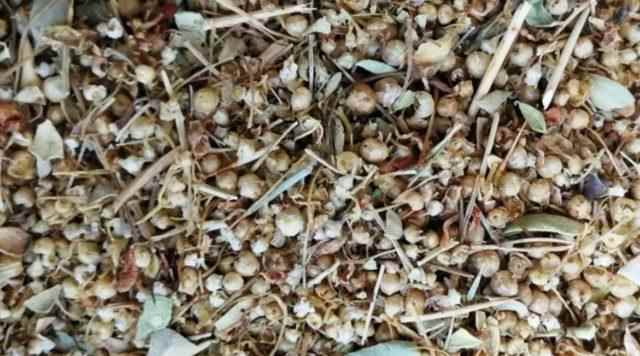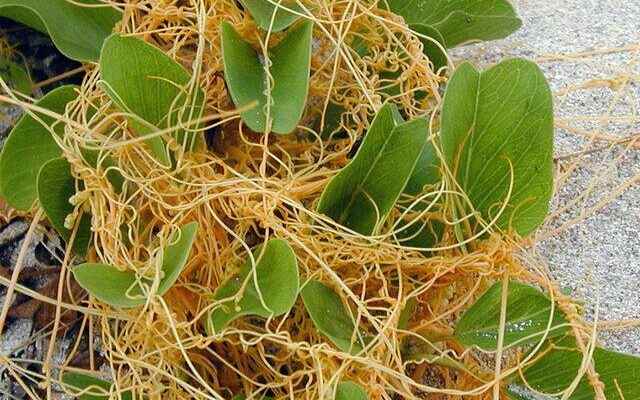Ibn Baytar, the great Muslim botanist and pharmacist who grew up in Andalusia in the 13th century after Ibn-i Sina, continues to give the secrets of the plants he uses for a healthy life in his book “Dictionary of Herbal Medicines and Foods”, which still exists today. The plant of ikshut, which is claimed to be recommended by Ibn Baytar, one of the best pharmacists in the world with the medicines it produces, cures diseases. The great botanist Ibn Baytar made readings from the works of Islamic scholars and compared the drugs and examined their chemical properties. These methods of the famous scholar contributed to the botanical and medical sciences after him.
WHAT IS IKSUT OTTO?
According to the news in Yenişafak, the 300-year-old manuscript copy of the book belonging to Baytar, the great Muslim botanist who grew up in Andalusia in the 13th century, continues to be cured by the mixtures obtained from 300 kinds of plants in the “Nature Pharmacy”.
Remzi Yağmurcu, who continues the profession of herbalist inherited from his father in the 600-year-old Tellallar Bazaar in Mardin, claims that he cures many diseases with 300 kinds of plant, plant and spice mixtures included in the copy of the manuscript book that he says belongs to İn-i Baytar. Remzi Yağmurcu, a 25-year-old narrator, says that he makes healing prescriptions written in the book ‘Nature Pharmacy’ (El mecmue body fi ilmi hikmen muktesar el adviye el mufrede İbn-i Baytar) with millimetric mixtures for therapeutic purposes against diseases.
İBN-İ BAYTAR MOST USED IKSUT PLANT GROWN IN MARDIN
Remzi Yağmurcu, a 35-year-old imam who stated that most of the patients using it came with healing symptoms and diminishing complaints and thanked him, said, “Ikşut is the best-selling plant among the medicinal herbs written in the book. Iksut is called ‘erekan’ in Arabic and ‘Abu safar’ in local Arabic. There is useful information about iksut in the curriculum book of Ibn Baytar, the greatest botanist of the Middle Ages. We see this information in the book written in Hijri 1168. We receive special orders for ikshut plant from all over the country. Iksut, a medicinal herb, is good for the treatment of fatty liver, hepatitis and diabetes. This herb, which is collected during the period of May and August, is prepared for use after drying. In addition, nettle, which is an important source of healing for cancer, is the most popular plant species. Many types of cancer It is effective on and reduces pain and aches.” said.

“IBN-I BAYTAR EXAMINED 14000 PLANTS”
Stating that the book has changed hands from father to son for centuries, Yağmurcu said: “With the mixtures I have obtained from medicinal plants written in Ibn Baytar’s book for 25 years, patients find healing first with Allah and then with these medicines. I look at the book like my own eyes. It is a book from my grandfathers. There are medicinal plants that are good for many diseases in the book written by i Baytar.
Here are those ailments that are claimed to be suggested by Ibn Baytar, who heals with herbs, and that ikshut herb and ikshut herb, which only grows in the Mardin region, are good…
DISEASES THAT IKSHUT WEED IS GOOD
Iksut herb, the famous plant of the Mardin region, is recommended by herbalists and spice sellers in the region for kidney ailments, especially fatty liver, blurred vision and eye strain. The herb, which has antioxidant and anticancer effects, is frequently used for liver problems and knee pains in the Mardin region.
USE OF IKSUT WEED
The use of Iksut herb, which grows only in the Mardin region in Turkey and is identified with the Mardin culture, is as follows:
2 tablespoons of ikshut herb is added to half a liter of boiled water and infused until morning.
It is then filtered and consumed in the morning on an empty stomach.
IKŞUT WEED TREATMENT PERIOD
It is recommended to drink 3-4 glasses of water a day for about a month.
Warning: Consult your doctor before use! Not for use in infants and children.
